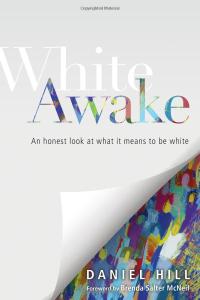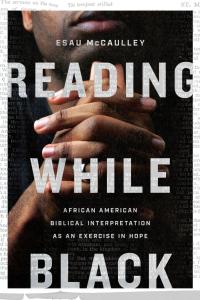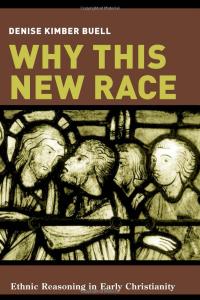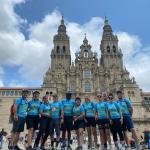Everyone’s life is a Venn diagram of overlapping identities and roles. In my case, I am the only child of a preacher and a grandson of immigrants, an American from New York living in South Carolina, a Calvinist-educated Pentecostal Christian teaching at a Southern Baptist university, a history educator and an administrator, an ordained minister, part of generation X, and an African American (or a mixed race, depending on the context) man in an interracial marriage with a white woman. I am all of these at the same time. Although all of those identities don’t equally influence my every decision and action, several of them come into play with each of my decisions and actions. Collectively, they all play a role in determining the kind of person I am.
A few weeks ago, I accepted the invitation to blog regularly at the Anxious Bench. Most of the above identities raced through my mind as I began to consider what topics I might write about, and what kinds of things I might say if I accepted the invitation. The topics that most attract my attention either find their genesis in one or more of those identities, the contradictions inherent in those identities, or in the fact that I have usually navigated those identities from a minority position. My only blogging experience thus far has been writing two Anxious Bench guest posts in 2017, so Anxious Bench readers are not likely to be familiar with me. I want to use this first regular post to introduce myself and my interests.
I am a product of Head Start, that wonderful War on Poverty and Great Society program for children from low income families. I attended my suburban local public school that was about 90% white until fourth grade, after which for two years I attended a school run by a Baptist church that used the Abeka Curriculum, and then I attended for six years, Eastern Christian School, a northern New Jersey school sponsored by local Christian Reformed Churches. From there I was excited to attend Oral Roberts University and experience Pentecostal-Charismatic education.
I followed an alternative path to the academy. In eighth grade I felt called to be a high school history teacher, and after college I pursued a thirteen-year teaching career in public secondary schools in my home county in New York before God intervened and redirected my life. I left the workforce for five years to earn my PhD in American History. Unlike so many other professors, I had not been drawn to the professoriate as a nineteen-year old enthralled by some college history professor. No professor took me under their wing to mentor me for the professoriate. I guess no one saw it in me.
My scholarship has focused on the African American experience with alcohol, temperance, and prohibition in the nineteenth-century, especially in the South, not exactly the most popular topic among evangelical historians. Since 2006 I have been teaching at North Greenville University, a teaching university of the South Carolina Baptist Convention.
Because my parents married late in life, I was an only child who never got to meet my grandparents. Both of my parents dropped out of college after one semester. My father was a bi-vocational pastor of a small Assemblies of God church. My parents held me close, and raised me within the norms associated with the Holiness movement, or Fundamentalism. Only one or two people in dad’s church held a college degree. As a child, it seemed rare, even odd, that “real” Christians would be either highly educated or hold high status positions. I didn’t know any in my church, neighborhood, or my family. My mom even said she thought I would stop attending our church after I graduated from college because “college educated people like to go to church with other college educated people.”
Mixed race people, racially mixed couples, and multi-cultural environments are normative to me. One result of this is that I am equally comfortable in all-white and all-black worship contexts, but everywhere I have lived, I have chosen to worship regularly at a multiracial/multicultural Pentecostal church.
My father grew up in New York City, and his parents were West Indian immigrants. My mother was from Connecticut, and her mother a Russian immigrant. About 1900 in Connecticut she met and married my grandfather, a black migrant from Virginia. Among my aunts, uncles, and cousins, in addition to American-born whites and blacks, I count a Jamaican, an Italian, a Mexican-American, a Libyan, a “Bajan” (from Barbados), and a converted Jew. My cousins seem to represent nearly every phenotype associated with black, white, and Hispanic people.
In addition to my extended family, I grew up in Hillburn, NY, a town of 950 people whose residents were primarily what sociologists call a “tri-racial isolate” group that was perpetually pursuing (with mixed success) governmental recognition as a bona fide American Indian tribe. My father’s church was among these people, and like my family, they contained a wide range of phenotypes. The couple who is closest friends to our family is a Bermudian immigrant married to the son of a Cape Verdean immigrant. They brought into my life a range of acquaintances who were white, West Indian, and African. The most offensive question people in my circles were asked was: “What are you?” Really?!
When I’m not in a multiracial milieu, I am usually in the minority. Out of 95 students, I was one of only four black students in my high school graduating class, and the only black male. I have been single for most of my adult life, and particularly as a male, that almost makes me a unicorn in America’s marriage-obsessed evangelical community. All of my years studying in Christian schools did virtually nothing to help me find a wife. It wasn’t God’s plan for me. In retrospect, there were many blessings in being single for so long. Being the only evangelical teacher in my public school, I found that I was clearly the most conservative teacher on staff. Since relocating to Greenville, South Carolina, I have had several people ask me if the move was a “culture shock.” My response: “Of course it was!” I had to come to terms with the fact that by local standards I had “transitioned” from one of the most conservative to one of the most “liberal” people around. Then I have had to adjust to life in a proudly “conservative” Southern Baptist university by trying to wrap my mind around Southern Baptist life, politics, and theology. Currently, I am the only non-white administrator in my university at the level of dean or higher, and when I taught high school, I was the only black male teacher for seven years. Seven years ago I was the only non-white and non-Southern Baptist on our school’s presidential search committee. I rarely ever find people in my Pentecostal churches who are as educated as I am or who understand my professional world. During some weaker moments of frustration and despair, I have thought it would be appealing to at least attend a church where I was by some measure, part of the demographic majority or the most influential/powerful subgroup. But alas, I remain committed to the challenges of diversity in my church choices.
One of my greatest epiphanies occurred to me while navigating my racial and spiritual identities as a public school teacher: Although being an African American was always going to be important to me, ultimately, nothing could ever be as important to me as my identity in Christ. While awareness of other identities waxes and wanes, my driving mission in life is to be as rigorously and intentionally biblical in my approach to life as possible. I want the Bible’s Kingdom principles to shape my actions and thinking more than cultural categories and pressures without denying that I will always be subject to some cultural influence. I am trying to live in this world more as as an alien and an ambassador, than as a “red blooded American.” I don’t want to be a Christian version of an American, I want to be be an American version of a Christian, but even at that, I am working to minimize the “Americanness” of my faith, because it has no eternal value for leading anyone to Christ, or getting me past those pearly gates. God’s Kingdom transcends earthly kingdoms, and we need more American Christians who talk and act like they believe that. Oh the challenges of being “in the world but not of the world!” Does a Christ follower have a greater challenge?
I could go on and on, but my point is that I will be blogging as an American historian trained in nineteenth-century social history, but also out of all of these overlapping identities and conflicting contexts that characterize my life. I will comment broadly on matters relating to politics and society that focus on race, education, Christian education, and Pentecostalism and Evangelicalism.
Finally, when people meet professors for the first time, they often ask them “What are you reading these days?” So in conclusion, I am providing a list of books that I’ve read or listened to in the last two to three years to provide insight into my current thinking and interests. The list is in no particular order, except that White Awake is the book I wish I could have written. I’m a big fan.
White Awake (Daniel Hill)
White Lies (Daniel Hill)
Misreading Scripture with Western Eyes (E. Randolph Richards & Brandon J. O’Brien)
Misreading Scripture with Individualist Eyes (E. Randolph Richards & Richard James)
Unshakable Faith (Carey H. Latimore IV)
Faithful Antiracism (Christina Edmondson and Chad Brennan)
Holy Sexuality and the Gospel (Christopher Yuan)
Prophetic Lament (Soong Chan Rah)
Reading While Black (Esau McCaulley)
Just Mercy (Bryan Stevenson)
Believe Me (John Fea)
White Fragility (Robin DiAngelo)
Why this New Race? (Denise Kimber Buell)
Radical Candor (Kim Scott)
The Bible Told Them So (J. Russel Hawkins)
Tempered Resilience (Tod Bolsinger)
The New Jim Crow, 10th anniversary edition (Michelle Alexander)
How to be an Antiracist (Ibram Kendi)
From Every People and Nation (J. Daniel Hayes)
Beyond Racial Division (George Yancey)
For my daily devotional Bible reading, I enjoy toggling between such study Bibles as the Jewish Study Bible, the Complete Jewish Study Bible, the Chronological Study Bible, the Ancient Faith Study Bible, and the New Spirit Filled Life Bible.
















